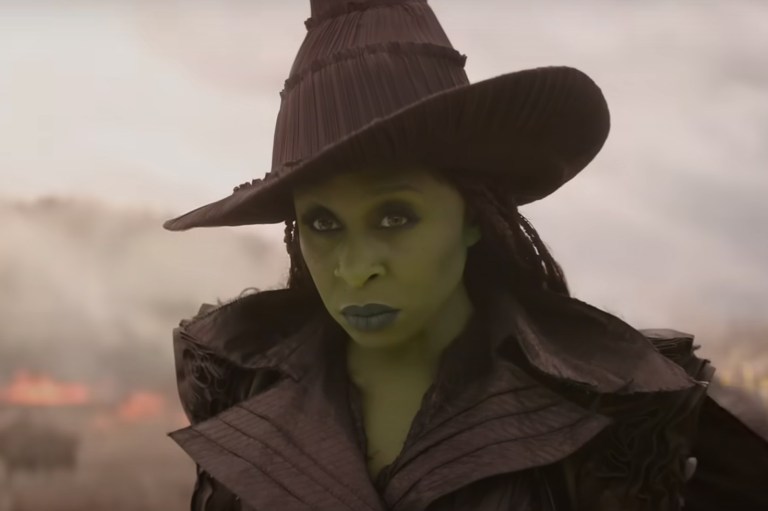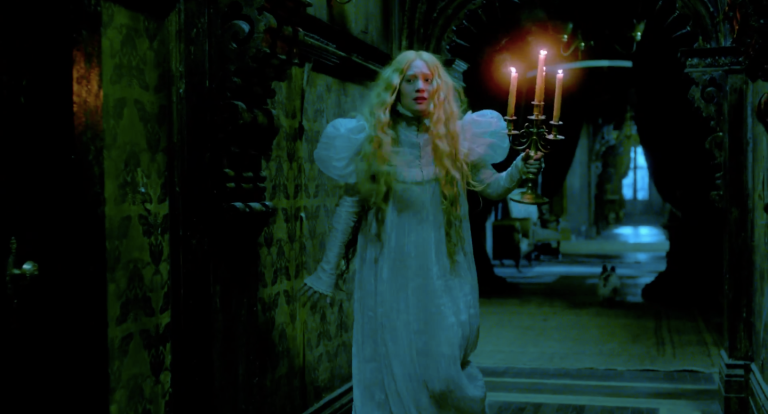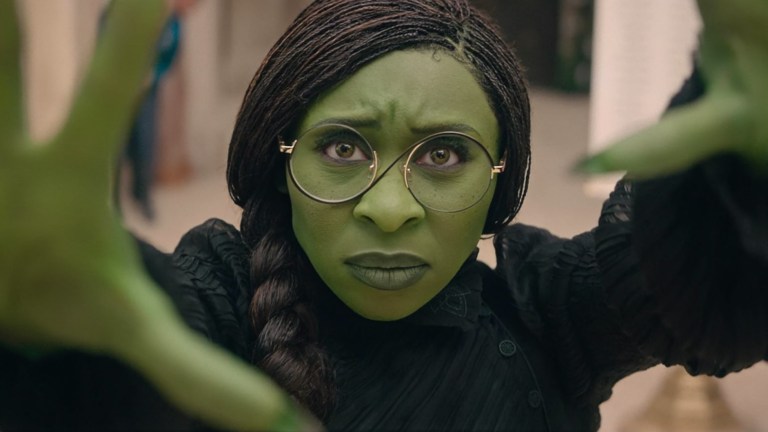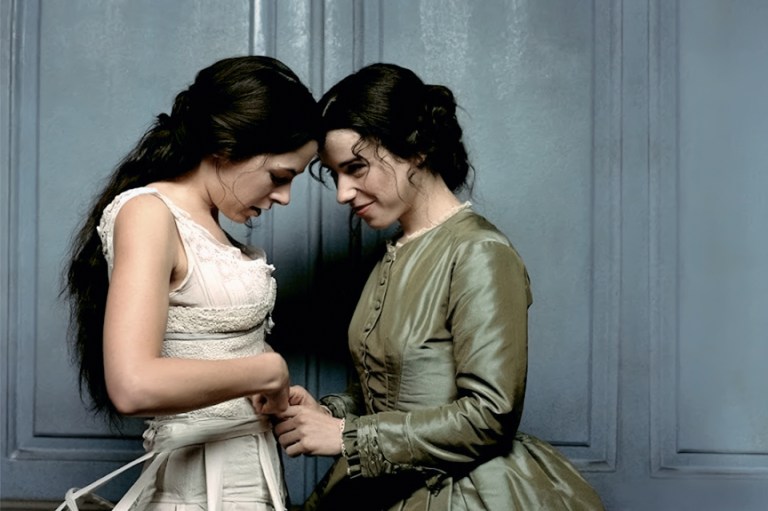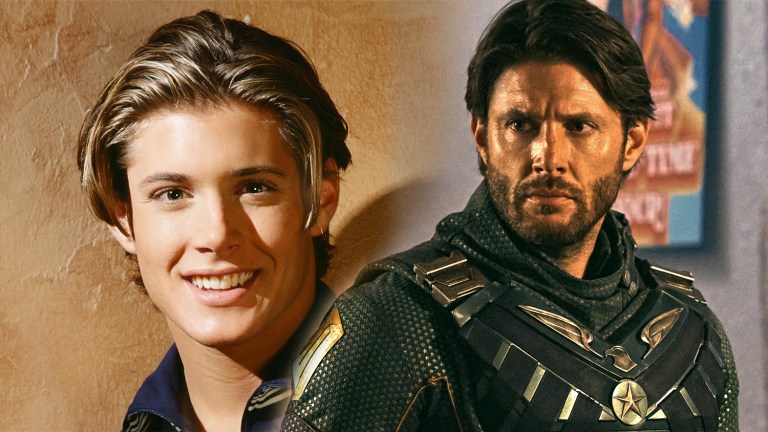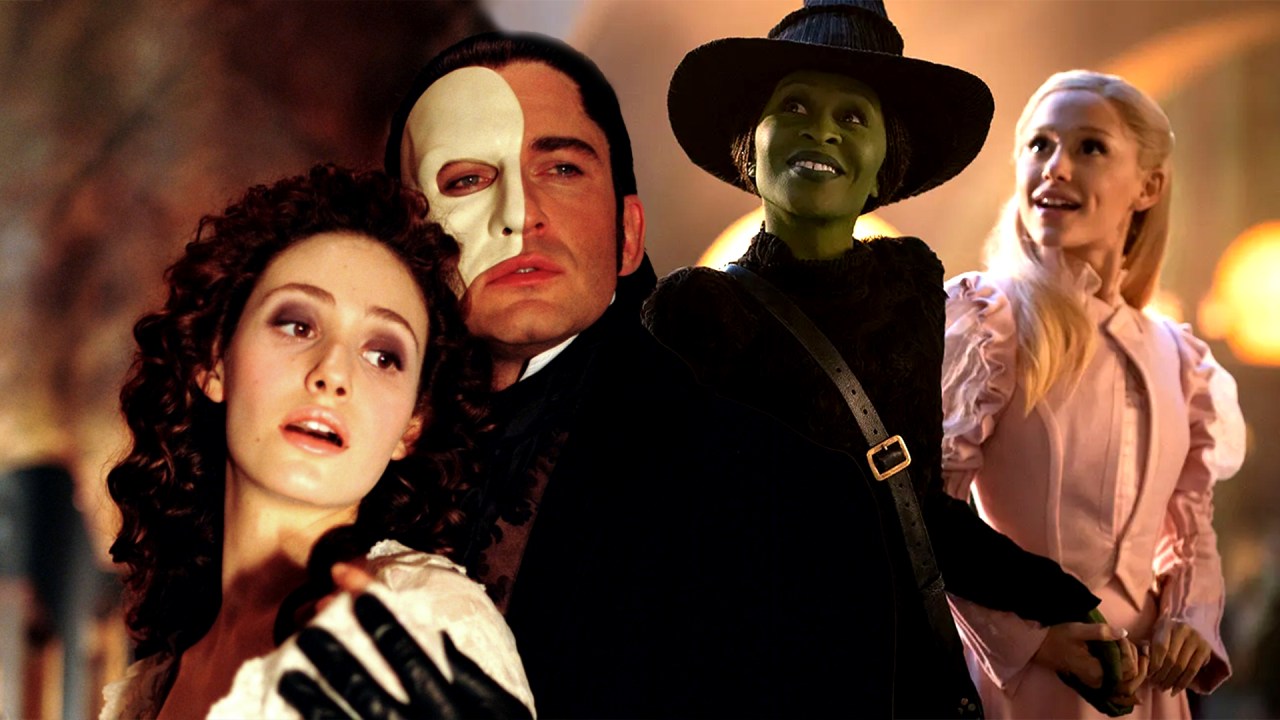
2004’s ‘The Phantom Of The Opera’ Deserves Way More Love Than ‘Wicked’
Hot take: Joel Schumacher's The Phantom of the Opera drops the chandelier on Jon M. Chu's Wicked.
Recency bias leaves legends lost in the past and elevates the flavor of the week to ridiculous heights.
Take Joel Schumacher’s film adaptation of The Phantom of the Opera and Jon M. Chu’s big-screen bonanza Wicked as prime examples. Now, don’t take this as a dunk on Wicked, because it’s an undisputed success by every measure, but the twerking for Elphaba and Glinda’s adventure as if it’s the second coming of The Rocky Horror Picture Show borders on embarrassing right now. In 2004, Schumacher unleashed an exquisite, sensual adaptation of the classic Andrew Lloyd Webber musical that didn’t get the love it deserved upon release, but in retrospect, The Phantom of the Opera merits an apology, because yes, it’s better than Wicked.
The Joel Schumacher hate parade influenced the reception toward ‘The Phantom of the Opera’
In any normal industry, whenever someone is involved in a project that fails, it gets attributed to bad luck or a tough moment. The point is everyone moves on from it. In Hollywood, the failure follows you around like the stench of festival bathrooms. It never leaves. That’s what happened to director Joel Schumacher after 1997’s misfire Batman & Robin. All of a sudden, everyone forgot about what Schumacher did with now-classic films like The Lost Boys, Flatliners, and The Client. He was seen as a bad filmmaker, and that was that.
Yet, if people read the history books, Schumacher more than proved his mettle after his stinky stint in Gotham City. Much like WWE’s Sheamus, the filmmaker experienced a career renaissance and produced banger after banger, as he dropped scorching-hot films like 8mm, Tigerland, Phone Booth, and – of course – The Phantom of the Opera.
Looking back at the reviews for The Phantom of the Opera paints quite the picture of the era. It’s clear that the industry wasn’t in the mood for musicals (maybe everyone was Moulin Rouge-d and Chicago-ed out at that point), as several critics complained about having to sit through the musical numbers (now, there are special singalong screenings for Wicked). Perhaps some of the most laughable criticism is how Schumacher stuck too close to Andrew Lloyd Webber’s version (conversely, it’s something that Jon M. Chu is praised for with Wicked), while others said he infused too much of his own pomp and circumstance into the production (like any big-screen adaptation of a musical).
On Rotten Tomatoes, The Phantom of the Opera holds a 33% critical approval rating from 169 reviews, signifying that critics viewed it as a failure. Fans didn’t view it that way, though, as 84% of 250,000 user reviews gave it a thumbs-up. So, what’s the story here? It’s simple: It was too fun to dislike anything that Schumacher touched after Batman & Robin, and musicals weren’t in vogue at the time. It was the perfect weather to host a hate parade.
The cast members deliver career-best performances
What most people forget about The Phantom of the Opera is how seminal it was in launching the careers of three of its stars: Gerard Butler, Emmy Rossum, and Patrick Wilson. None of them were household names in 2004, but they used the film as a launching pad to becoming bigger stars in the entertainment industry.
Now, here’s the funny thing: The Phantom of the Opera also marks the highest point of their respective careers. As the Phantom, Butler shows both dangerous and vulnerable sides as a character. Like Count Dracula, whom the Scottish actor plays in the so-bad-it’s-good Dracula 2000, there’s more than meets the eye to this bad boy who lurks in the shadows and lets his heart lead his head. Nowadays, he’s relegated to mostly B-movie action fodder, but here, in this adaptation, he’s the living, breathing embodiment of a tortured rock star.
The same can be said for Rossum. Sure, she had a memorable stint as Fiona Gallagher in Shameless, but has she had such a conflicting and mesmerizing role like she did as Christine Daaé? Let’s not forget to mention her outrageous singing ability either, because it’s criminal that more musical adaptations aren’t knocking at Rossum’s door. She might have starred in the horrendous Dragonball Evolution movie, but Rossum’s Super Saiyan form is actually alive and in living color in The Phantom of the Opera.
Then, there’s Wilson, who plays the third wheel in the romance, Raoul de Chagny. Out of the three leads, he’s the one who has gone on to have meatier roles and received critical acclaim for his performances, but he hasn’t matched the captivating level he brings as Raoul in this film. Wilson demonstrates his range as an actor to play a supporting character that many people root against – even though he’s technically the one everyone should support against the Phantom – knowing how his role serves the greater story. It’s a selfless and thankless part that Wilson makes his own.
The Phantom of the Opera needs to be revisited and reevaluated
Again, take nothing away from Wicked. What Jon M. Chu and the cast and crew achieved should be celebrated as a win for musical adaptations, renewing hope that Hollywood will invest in more in the future. However, it’s bittersweet for everyone who watched The Phantom of the Opera back in the 2000s and doesn’t understand why it isn’t heralded for the trail-blazing spectacle it is. Truth be told, it isn’t the first film that critics have got wrong either.
Two decades later, though, it’s possible to do right by Joel Schumacher and The Phantom of the Opera through a reevaluation of its importance to the genre. This rock ‘n’ roll opera contains all the greatness and star power that should be revered and cherished by musical lovers. It’s an extraordinary adaptation of a beloved love story that stands the test of time – whether it be in 1909 when author Gaston Leroux published it as Le Fantôme de l’Opéra or 2025. More than anything, it’s time for everyone to reach the point of no return and admit The Phantom of the Opera is incredible, and the G.O.A.T. of musical adaptations.
